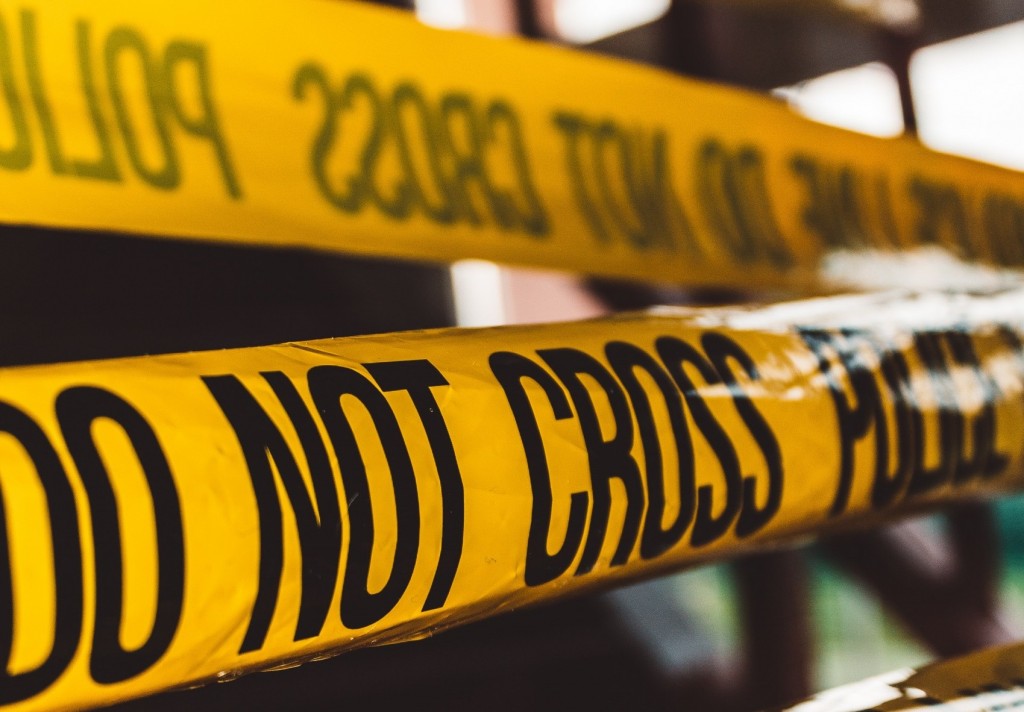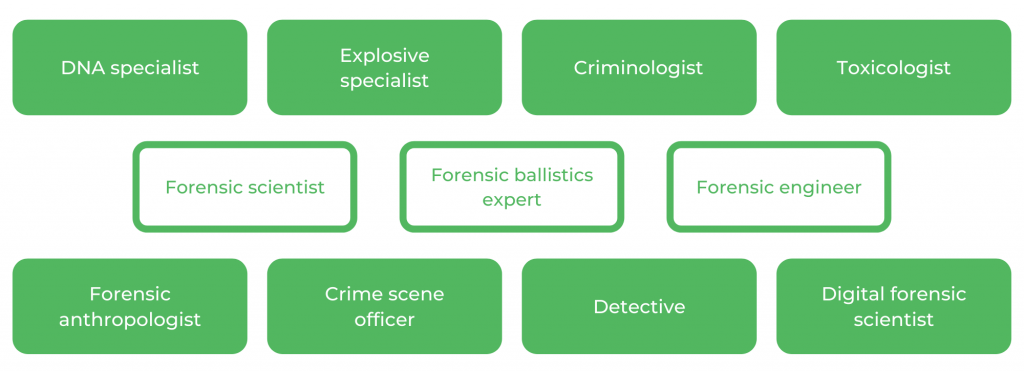
So, you’re ready to become the next Abby Scuito (NCIS) and have all the information on studying a Bachelor of Forensic Science at UTS — check this out if you don’t!
But you want to know how people really feel about this degree?
Well, this time you won’t have to investigate because we’ve got you covered! Say hi to Mikki Ree, a UTS Forensic Science Graduate who is currently completing Honours. We ask her all those nitty-gritty questions you want to know!
Let’s get started!
Why should you study a Forensic Science degree at UTS?
Top 3 Pros of a Forensic Science Degree
Top 3 Cons of a Forensic Science Degree
Mistakes You Shouldn’t Make
Things to Know Before Starting UTS Forensic Science
What Makes this Degree Different
Motivations for Studying UTS Forensic Science
Potential Career Paths
Why should you study a Forensic Science degree at UTS?

UTS Forensic Science is a very hands-on degree where you investigate mock crime scenes to develop your practical skills and you’re taught by people working in the industry!
Top 3 Pros of a Forensic Science degree
#1: It’s a hands on degree
“You get to do all the fun light searches, you get to be really hands on, do fingerprinting and learn about DNA,” Mikki said.
Now, that sounds pretty cool to us because it’s what you’ll also do in the real world — UTS really gets you ready for this. You’ll also learn how to document and analyse evidence and how to communicate that evidence in front of a courtroom!
#2: You learn from the best
You get taught by people who are actually working in the Forensic Science world — the best way to learn! You hear from crime scene officers, forensic scientists, police and more.
“We had a lot of really interesting lectures and workshops from people actually in the field,” Mikki told us.
She added, “Having someone come in and say ‘I searched this crime last week’ or actually telling you what their experiences are and what goes on in the field, not just theoretical, is really interesting.”
#3: Great faculty culture
“Everyone doing forensics is so interested and passionate about it,” Mikki said.
She added, “You’re doing it because you’re interested in it in the first place and everyone wants to be there”.
Mikki “made some of her closest friends” during the degree and it’s pretty much guaranteed that you’ve all watched the same crime shows out there!
You should definitely check out the UTS Forensic Society (FSS) because they not only offer fun social events but also industry panels and networking evenings where you can chat with those in the field!
Top 3 Cons of a Forensic Science degree
#1: A fair bit of maths and physics involved
Maybe maths and physics aren’t your favourite subjects, but you’ll still have to do them as part of the core units!
Mikki’s least favourite part about the degree was “having to do maths and physics because it felt like those subjects didn’t really relate”.
#2: Hard to get internships
Now, internships aren’t a mandatory part of the degree but if you want to do one, they can be a little tricky to get because there aren’t many offered. However, UTS do send out emails every now and then when one comes up.
“It’s a bit complicated and a difficult process because of terms and conditions, confidentiality and more risk involved in that,” Mikki expressed.
#3: Newer majors still being developed
As some of the subjects in the Crime Scene Investigation and Digital Forensic majors are new, they are still being developed.
Mikki said, “We were sometimes getting conflicting information or not getting taught some skills we were expected to have in later classes.”
She added, “I guess the continuity between subjects wasn’t all there — I think it’s mainly due to it being a relatively new degree and having teachers with very different backgrounds and levels of experience.”
Any regrets?
“No regrets at all — except having HECS debt but that applies to any degree,” Mikki said.
We’re pretty sure that speaks for itself — if you’re interested in forensics and love crime what they do in all those cool crime shows, then this is the degree for you!
What do you wish you had known before starting Forensic Science at UTS?
#1: Good to have maths and science behind you
Mikki said, “It’s useful to have a better grasp on maths/physics and chemistry to make those first year subjects less daunting.”
So, if you’ve taken maths, physics and/or chemistry for the HSC, then you’re off to a good start! But, you’ll also get taught what you need to know in the core subjects — so don’t worry if you haven’t.
#2: Know what you can do after
“I wish I’d known the pathways people take after, like how Honours or Masters works,” said Mikki.
Mikki did the Crime Scene Investigation major because she had always been interested in it and had her eye on becoming a Crime Scene Officer. However, as she progressed throughout the degree and learnt new skills, she became interested in another aspect of Forensics — research!
“I’m doing fingerprint research this year [Honours project] and I’d like to keep doing that a bit more — I feel like that’s a bit more what I’m interested in,” she told us.
What makes this degree different from the ones offered at other universities?
#1: One of the few places that offer the degree
“I think Western Sydney is the only other uni that offers something equivalent,” Mikki said.
And she’s right! There aren’t a whole lot of Forensic Science degrees out there and if you want to do it in Sydney, they are pretty much your only choices. There are a few similar degrees interstate.
She also mentioned that she had two friends who did their first year at Western Sydney University and then transferred to UTS. Mikki said, “They found that UTS has better equipment, they’ve got the big labs and have a few people in the forensics area — especially in the research area, who have worked all over the world.”
#2: Great facilities
The Crime Scene Simulation Lab allows UTS Forensic Science students to practice their skills in mock crime scene settings, just as if you were a Crime Scene Investigator in the real world. There’s a mock bedroom, kitchen and dining room and you even have cameras to practice your photography and documentation skills.
“I was constantly impressed with what they came up with — in the crime lab, the mock rooms made it quite easy to put that practical stuff in,” she said.
What inspired you to choose Forensic Science at UTS?
Mikki had always been interested in Forensics and had watched a lot of crime shows so knew she wanted to do something Forensics related.
She said, “I remember seeing on their [UTS] website a list of the jobs people can get afterwards — like a crime scene officer. It was kind of promising to give me all these skills so I could go and get a job I’ve been interested in doing for a long time with just the one degree.”
What are the possible career paths?

There are some very exciting job opportunities for Forensic Science students! Of course, you could work as a Forensic scientist or Crime Scene Officer, but there’s also opportunities for research as it’s an emerging field — plus way more depending on your major!
Tanna Nankivell is a Content Writer at Art of Smart Education and is currently in Germany completing a year of study for her double degree in Communications (Journalism) and Bachelor of Arts (International Studies). She has had articles published on Central News – the UTS Journalism Lab and wrote a feature piece for Time Out Sydney during her internship. Tanna has a love for travel and the great outdoors, you’ll either find her on the snowfields or in the ocean, teaching aqua aerobics or creating short films.


